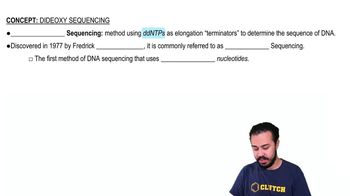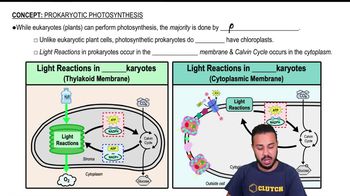Which of the following is a scientific name?
a. Mycobacterium tuberculosis
b. Tubercle bacillus
 Verified step by step guidance
Verified step by step guidance Verified Solution
Verified Solution


 5:22m
5:22mMaster Scientific Naming of Organisms with a bite sized video explanation from Jason Amores Sumpter
Start learning